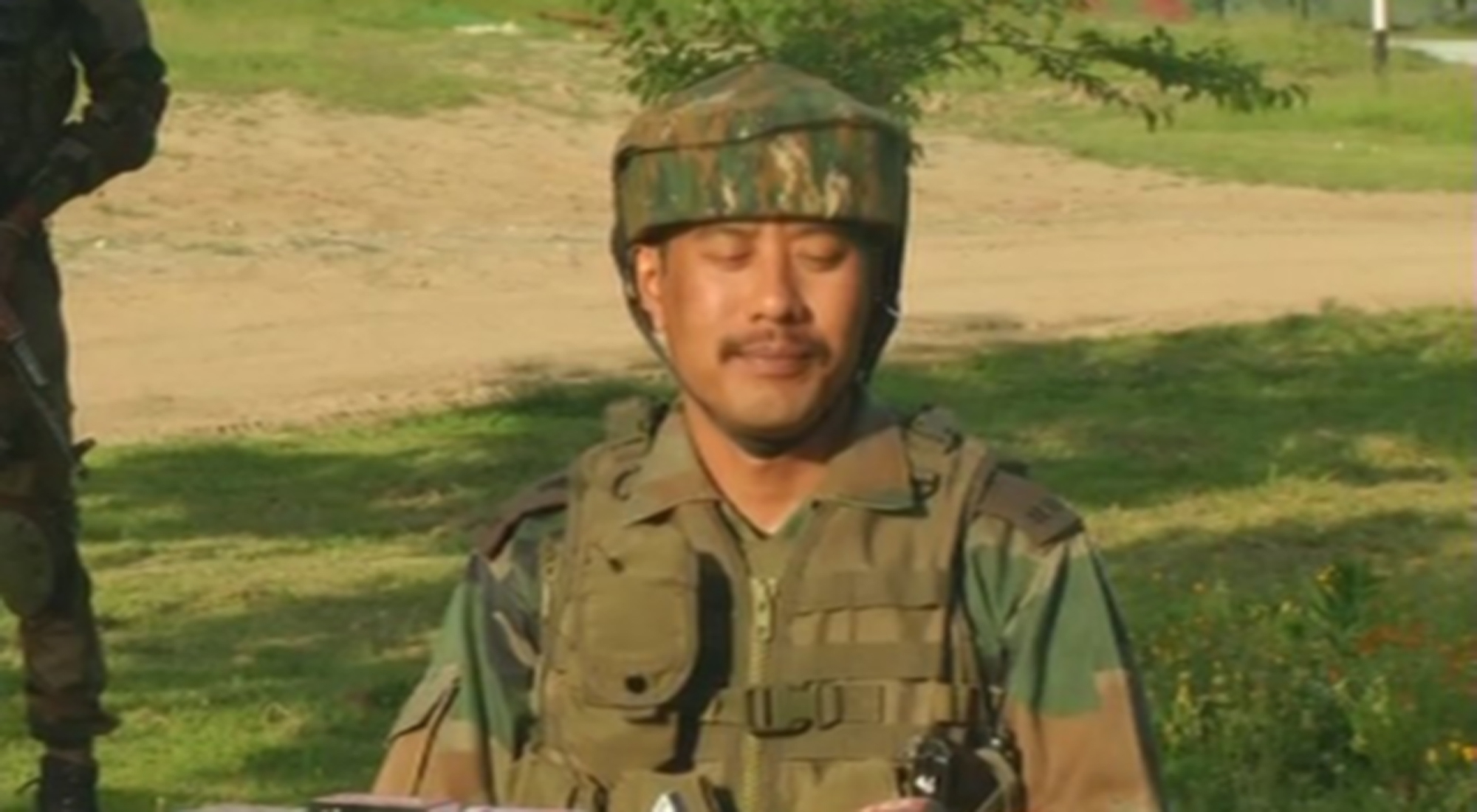Major Gogoi’s incident is a proof of the erosion of value system in the army
By Pravin Sawhney
It takes a special kind of talent to make news for the wrong reasons twice in barely 13 months. And when the newsmaker is a major of the Indian Army, long regarded as one of the last bastions of integrity, honour, courage and fortitude, then one must sit up and look hard both inside the glorious institution and outside at the environment that it has created for itself.
Major Leetul Gogoi attained fame or notoriety, depending upon which side of integrity you are on, last April when in an inspired moment he picked up a Kashmiri artisan, Farooq Ahmed Dar, during the Budgam bypolls, tied him on the bonnet of an army jeep and paraded him through the day across several districts. Dar claimed that he was ‘mercilessly beaten’ before being harnessed onto the jeep.
This act was met with understandable horror not only by the human rights activists, often dismissed as professional breast-beaters by the nationalistic uniformed class, but also by military veterans, some of whom went public with their condemnation. They feared that this one incident would have set back all the good work that the army has tried to do in the insurgency-ridden Jammu and Kashmir.
The bigger fear was that the incident was evidence of everything that is going wrong in the army, including the erosion of its ethos and values that ensured that even under the most extraordinary circumstances the army retained its humanity and professionalism.
The fears were not unfounded. On May 23 this year, the same officer was handed over to the Jammu and Kashmir police by civilians, who in turn handed him over to his unit. This time Major Gogoi was trying to check into a Srinagar hotel with a girl from the same district Budgam which was singed by his action last year. This sets to rest the half-baked argument about consenting adults. Only a person who has spent all his life in a fairy tale bubble would fail to see the power dynamic between an army officer and the civilian girl living in fear of that army.
More to the point, Major Gogoi is not on a holiday to Kashmir, he is posted there. Yet, he saw nothing wrong in hiding his army identity and pretended to be on a business trip when booking the room online. According to a news report, when the hotel insisted on an ID proof he was reluctant to show his and instead furnished the girl’s Aadhar card.
Are these the officer-like qualities (OLQs) that the army now expects in its officers? OLQs, each gentleman-cadet is taught at the Indian Military Academy (IMA) and similar schools, are what distinguishes the raw cadets from officers. Thus, can an officer who has no qualms about shedding his army identity for alleged personal gratification be trusted to uphold the army ethos, which puts self-interest as the last interest? Yet, none of these questions troubled Major Gogoi’s conscience because he believed he had immunity from accountability, both moral and physical. After all, didn’t his earlier misdemeanour earn him the commendation of the Chief of Army Staff award?
Last year, after the human shield incident, even as the Indian Army had instituted court of enquiry against Major Gogoi, Army Chief, General Bipin Rawat had stepped in to reward him. The reasoning for that was given by him in an interview earlier this month. He said: “We were investigating the issue when a FIR was filed against him. My officer felt that he is being abandoned. I can’t let my officer feel that.”
So, General Rawat chose to stand by one erring officer and abandon the entire institution that is the Indian Army, and all the other honourable young men and women who make this institution what it is. Seen dispassionately, Gen. Rawat actually abandoned that officer too by standing by him when he needed to be upbraided. If Major Gogoi and officers like him are punished for wrong-doing, it not only sets an example for others, but also may bring them to the right path. That is what military discipline is all about.
This is how professional militaries are distinguished from rogue armies. And this is how the military leadership takes his service to the highest level of competence or the lowest level of human fallibility. I hope with this incident we have hit the pit and now we can build our way up.
This should be the wake-up call for General Rawat to see the larger picture about the future of the Indian Army. Gogoi’s instance should tell the army that the idea of Rashtriya Rifles (RR) is taking a heavy toll on its reputation and professionalism.
Surely, Major Gogoi’s case is not an exception. Many more perhaps never get reported. Since intimidation of a people is also human rights violations, what does all this do to the reputation of the Indian Army?
Given this, when the locals do not partake in festivities hosted by the army, can they really be blamed? Aren’t we pushing the local youth on to the road which leads to alienation and death, thereby taking 10 steps back every time we take one forward?
As a former officer who served the Indian Army with great pride, I have long been saddened by this gradual whittling away of our value system. I drew comfort from the fact that in recent past there were chiefs who were equally concerned about this and wanted the army to ‘go back to the basics’.
But today the sadness has been replaced by rage. The gradual erosion of values has acquired the speed of an avalanche in the last two and half years. How debilitated it will leave the army after it settles down is the stuff nightmares are made of.


